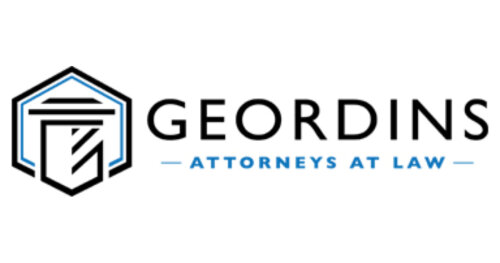Best FDA Law Lawyers in Grace Bay
Share your needs with us, get contacted by law firms.
Free. Takes 2 min.
List of the best lawyers in Grace Bay, Turks and Caicos Islands
About FDA Law in Grace Bay, Turks and Caicos Islands
FDA Law, short for Food and Drug Administration Law, generally refers to the regulation and oversight of food, pharmaceuticals, medical devices, cosmetics, and health supplements. While Grace Bay, located in the Turks and Caicos Islands, does not have a direct equivalent to the United States FDA, the islands have their own set of laws and regulatory authorities governing public health, food safety, pharmaceuticals, and related consumer products. These regulations ensure that products distributed, sold, and consumed are safe and compliant with local and, in many cases, international standards.
Why You May Need a Lawyer
Seeking legal help in FDA Law is crucial for both businesses and individuals in Grace Bay for several reasons. Here are some common situations that may require professional legal guidance:
- Importing or exporting food, drugs, or medical devices
- Obtaining licenses and permits for operating a food or pharmacy business
- Navigating product labeling and advertising requirements
- Defending against or responding to regulatory enforcement actions
- Assisting with product recalls or consumer safety issues
- Understanding obligations related to the sale of dietary supplements or cosmetics
- Seeking guidance on compliance with both local and international standards
- Handling disputes involving the safety or efficacy of a product
- Advising medical professionals on legal risks related to pharmaceuticals and devices
Local Laws Overview
The Turks and Caicos Islands have their own public health and safety regulations, administered by local government agencies such as the Ministry of Health and Human Services, the Environmental Health Department, and the Customs Department. Key legal considerations involving FDA-related issues in Grace Bay include:
- Licensing and permits for food establishments, pharmacies, and importers
- Mandatory registration and inspection of food, drugs, and devices
- Compliance with labeling, packaging, and advertising rules
- Import and export restrictions on certain pharmaceuticals and medical equipment
- Food safety standards enforced for public health protection
- Product liability and recall procedures
- Enforcement actions for non-compliance, including fines and business closures
Additionally, international best practices such as those from the World Health Organization (WHO) and international trade agreements may also impact regulatory requirements in the Turks and Caicos Islands.
Frequently Asked Questions
What is the equivalent of FDA in the Turks and Caicos Islands?
While there is no local FDA agency, the Ministry of Health and Human Services and the Environmental Health Department serve similar functions by overseeing the regulation of food, drugs, and health products in the Turks and Caicos Islands.
Do I need a license to sell food or drugs in Grace Bay?
Yes, you must obtain the appropriate licenses or permits before selling food, drugs, or medical devices. This ensures that your business complies with local safety and quality standards.
Can I import pharmaceuticals or medical devices into the Turks and Caicos Islands?
Importing pharmaceuticals and medical devices is permitted, but it is subject to strict regulations and oversight by the relevant authorities. You will need appropriate documentation and may require inspections or approvals.
What are the labeling requirements for food products?
Food products must be clearly labeled with ingredients, expiration dates, and manufacturer information. The labels should be in English and provide all essential consumer information as required by local law.
Are dietary supplements regulated differently from pharmaceuticals?
Dietary supplements are subject to separate but related regulatory standards. They must be safe for consumption, accurately labeled, and not marketed with false or misleading claims.
What are the penalties for non-compliance with food and drug regulations?
Penalties can include fines, seizure of products, suspension of licenses, and even closure of businesses found to be in violation.
How can a lawyer assist with FDA Law compliance?
A lawyer can help you understand complex regulations, prepare documentation, respond to enforcement actions, and represent your interests in any legal proceedings related to FDA Law issues.
Are recalls possible in the Turks and Caicos Islands?
Yes, local authorities can mandate product recalls if a food, drug, or device is found to be unsafe or non-compliant with regulations.
Do international FDA approvals apply locally?
While international approvals, such as those from the United States FDA or European agencies, may be considered during the review process, the local authorities have the final say on whether a product can be sold or imported.
What steps should I take if my business faces regulatory action?
Seek immediate legal advice, gather all relevant documentation, and cooperate with local authorities. Legal professionals can help you navigate the process and work toward a resolution.
Additional Resources
If you are seeking information or assistance related to FDA Law in Grace Bay, consider reaching out to the following resources:
- Ministry of Health and Human Services
- Environmental Health Department
- Customs Department (for import and export issues)
- Chamber of Commerce for business support and guidance
- Local law firms experienced in regulatory and commercial law
- Professional associations for pharmacists, medical doctors, and food industry professionals in the Turks and Caicos Islands
Next Steps
If you believe you may need legal assistance for an FDA Law matter in Grace Bay, here are suggested steps to take:
- Identify the specific issue or concern you are facing
- Gather any relevant documents or evidence, such as licenses, correspondence, or notices from authorities
- Contact a qualified local lawyer or law firm with experience in regulatory, health, or commercial law
- Discuss your situation and determine your legal options
- Follow the lawyer's advice on compliance, responses to regulatory actions, or preparation of necessary filings and documentation
Acting proactively and seeking professional guidance early can help you avoid costly mistakes, protect your interests, and ensure your business or personal dealings remain in compliance with FDA-related laws in the Turks and Caicos Islands.
Lawzana helps you find the best lawyers and law firms in Grace Bay through a curated and pre-screened list of qualified legal professionals. Our platform offers rankings and detailed profiles of attorneys and law firms, allowing you to compare based on practice areas, including FDA Law, experience, and client feedback.
Each profile includes a description of the firm's areas of practice, client reviews, team members and partners, year of establishment, spoken languages, office locations, contact information, social media presence, and any published articles or resources. Most firms on our platform speak English and are experienced in both local and international legal matters.
Get a quote from top-rated law firms in Grace Bay, Turks and Caicos Islands — quickly, securely, and without unnecessary hassle.
Disclaimer:
The information provided on this page is for general informational purposes only and does not constitute legal advice. While we strive to ensure the accuracy and relevance of the content, legal information may change over time, and interpretations of the law can vary. You should always consult with a qualified legal professional for advice specific to your situation.
We disclaim all liability for actions taken or not taken based on the content of this page. If you believe any information is incorrect or outdated, please contact us, and we will review and update it where appropriate.









